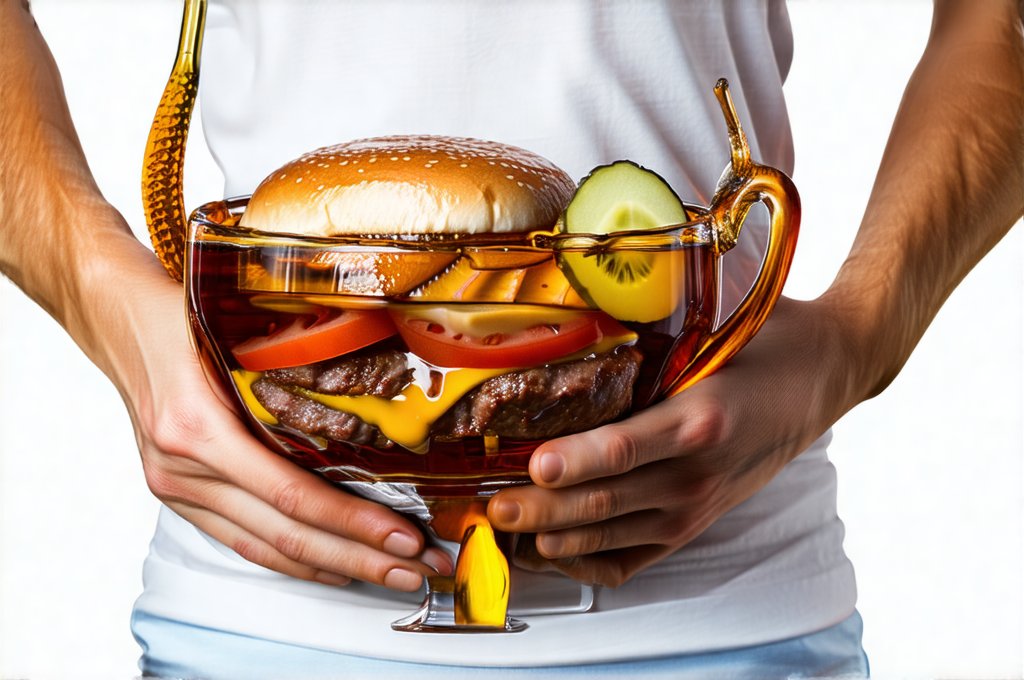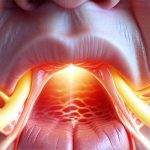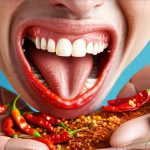Indigestion, a discomforting sensation often described as an upset stomach, is a common experience for many. However, when it strikes with severe intensity, leaving you bloated, nauseous, and generally miserable, the underlying causes deserve closer examination. While numerous factors can contribute to severe indigestion episodes, the combination of alcohol consumption alongside fatty foods frequently plays a significant role – often exacerbating pre-existing sensitivities or triggering acute digestive distress. This seemingly innocuous pairing creates a cascade of physiological events that overwhelm the digestive system’s capacity, leading to uncomfortable and sometimes debilitating symptoms. Understanding this interplay is crucial for preventative measures and informed choices regarding diet and lifestyle. If you suspect your indigestion might be linked to specific foods, learning how to recognize and manage food-related triggers can be beneficial.
The human digestive system is an incredibly complex network designed to break down food efficiently, absorb essential nutrients, and eliminate waste. It operates optimally under specific conditions, relying on a delicate balance of enzymes, hormones, and muscle contractions. Introducing both alcohol and high-fat foods simultaneously throws this balance into disarray, challenging the system’s ability to process effectively. Alcohol interferes with normal digestive functions in multiple ways, while fatty foods demand significantly more effort from the digestive tract, placing an increased burden on already compromised processes. This article will delve into the specific mechanisms behind this interaction and explore how it ultimately leads to severe indigestion episodes, offering insights into mitigation strategies. If these issues are affecting a child, you may want to learn how to support a child with recurrent indigestion as well.
The Double Whammy: Alcohol & Fat Interaction
Alcohol isn’t merely a substance that affects the brain; its impact on the digestive system is profound and often underestimated. When alcohol enters the body, it disrupts several key processes. Firstly, it slows down gastric emptying – meaning food stays in your stomach for longer. This prolonged stay can lead to bloating and a feeling of fullness, even with relatively small amounts of food. Secondly, alcohol irritates the stomach lining, increasing acid production. While some stomach acid is necessary for digestion, excessive acid contributes significantly to heartburn and indigestion. Thirdly, it interferes with the absorption of vital nutrients, potentially leading to deficiencies over time. Fatty foods, on their own, present a separate but equally challenging set of issues for digestion.
High-fat foods require bile – produced by the liver and stored in the gallbladder – to emulsify fats into smaller droplets that can be easily broken down by enzymes. This process is already relatively slow compared to carbohydrate or protein digestion. Furthermore, fat slows gastric emptying even more than alcohol does, compounding the problem. When combined, alcohol’s disruption of digestive processes amplifies the challenges posed by fatty foods. The slowed gastric emptying means increased pressure in the stomach, potentially leading to acid reflux and heartburn. The irritation caused by alcohol exacerbates the discomfort from the overproduction of bile needed for fat digestion. This creates a vicious cycle where each component worsens the effects of the other, ultimately culminating in severe indigestion. Understanding how emotional eating can also contribute to these issues might be helpful as well.
The interplay isn’t simply additive; it’s synergistic. It’s not just ‘alcohol slows digestion + fat slows digestion’; it’s that alcohol fundamentally alters how your body handles the slowing effect of fats. Consider a high-fat meal without alcohol – you might experience some fullness, but likely not debilitating discomfort. Now introduce alcohol into the mix: suddenly, that same meal feels much more oppressive and distressing. The liver, already occupied with metabolizing alcohol, has less capacity to efficiently process the increased fat load, leading to further digestive complications and potential inflammation. This explains why even moderate amounts of both can trigger significant symptoms in susceptible individuals.
Understanding Gastric Emptying & Acid Reflux
Gastric emptying is the rate at which food moves from the stomach into the small intestine. As mentioned earlier, both alcohol and fat significantly slow this process. Normally, the stomach regulates its emptying based on the composition of food – carbohydrates empty relatively quickly, proteins a bit slower, and fats slowest of all. Alcohol disrupts this natural regulation, delaying gastric emptying regardless of what else is present in the stomach. Fatty foods naturally prolong the time food remains in the stomach because they require more extensive breakdown and emulsification. This extended stay increases the likelihood of acid reflux – when stomach acid flows back up into the esophagus.
Acid reflux isn’t just uncomfortable; it can cause significant damage to the esophageal lining over time. The burning sensation you experience during heartburn is a direct result of this acidic exposure. Alcohol also weakens the lower esophageal sphincter (LES) – the muscle that prevents stomach acid from flowing backward. This means that even if gastric emptying is relatively normal, alcohol can still increase the risk of reflux. Combining these factors – slowed gastric emptying and a weakened LES – creates a perfect storm for severe heartburn and indigestion. The increased pressure in the stomach from delayed emptying further pushes acid upwards, exacerbating the discomfort.
- Consider timing: Eating fatty foods before consuming alcohol might slightly mitigate effects, as some initial digestion occurs. However, this is not a foolproof solution and doesn’t eliminate the overall digestive strain.
- Hydration matters: Drinking water alongside both can help dilute stomach acid, but it won’t counteract the fundamental disruptions to digestive processes.
- Individual sensitivity varies: Some people are more prone to acid reflux than others due to anatomical differences or pre-existing conditions. – If dairy is a trigger for you, consider how to deal with indigestion caused by dairy products.
The Role of Bile & Pancreatic Enzymes
Bile is essential for fat digestion, as it breaks down large fat molecules into smaller ones that can be absorbed by the small intestine. However, excessive amounts of bile can also contribute to indigestion, causing nausea and diarrhea. Alcohol impairs the liver’s ability to effectively process fats, leading to an overproduction of bile in some individuals. The gallbladder, responsible for storing and releasing bile, may struggle to keep up with demand when faced with both alcohol’s interference and a high-fat meal.
Pancreatic enzymes are another crucial component of digestion, breaking down carbohydrates, proteins, and fats further in the small intestine. Alcohol can also interfere with pancreatic enzyme secretion, reducing their effectiveness. This means that even if bile is present in sufficient quantities, the breakdown of fats may still be incomplete, leading to undigested fat reaching the colon and causing discomfort. The combination of impaired bile production/release and reduced pancreatic enzyme activity creates a double blow for fat digestion, leaving you feeling bloated, gassy, and generally unwell. Furthermore, incomplete fat digestion can lead to malabsorption – where your body struggles to absorb essential fatty acids and vitamins. This isn’t immediately noticeable but can have long-term health consequences. – Proactive enzyme supplementation should not be attempted without medical guidance. It’s crucial to address the root cause – reducing alcohol consumption and fatty food intake – rather than masking symptoms. If you are planning a meal out, consider how to choose restaurants when dealing with indigestion.
Identifying & Managing Severe Indigestion Episodes
Recognizing the signs of severe indigestion is the first step towards managing it. Symptoms can vary, but common indicators include: – Intense stomach pain or cramping – Nausea and vomiting – Bloating and gas – Heartburn – A feeling of fullness even after eating small amounts – Diarrhea or constipation. If you experience these symptoms frequently or intensely, it’s important to consult a healthcare professional to rule out any underlying medical conditions.
Managing severe indigestion episodes often involves both immediate relief measures and long-term lifestyle adjustments. For acute episodes, over-the-counter antacids can help neutralize stomach acid and provide temporary relief. However, relying solely on medication is not a sustainable solution. Long-term management requires reducing or eliminating alcohol consumption, limiting intake of high-fat foods, eating smaller more frequent meals, and staying hydrated. Identifying personal triggers – specific fatty foods or types of alcoholic beverages that consistently cause problems – is also essential.
Prioritizing digestive health through mindful dietary choices and responsible alcohol consumption can significantly reduce the frequency and severity of indigestion episodes. Consider a food diary to track what you eat and how it affects your digestion, allowing you to pinpoint problem areas and make informed adjustments. Remember, prevention is always better than cure when it comes to severe indigestion – and understanding the interplay between alcohol, fatty foods, and your digestive system is key to achieving that goal. – Learning how to eat with joy while managing triggers can improve quality of life.


















